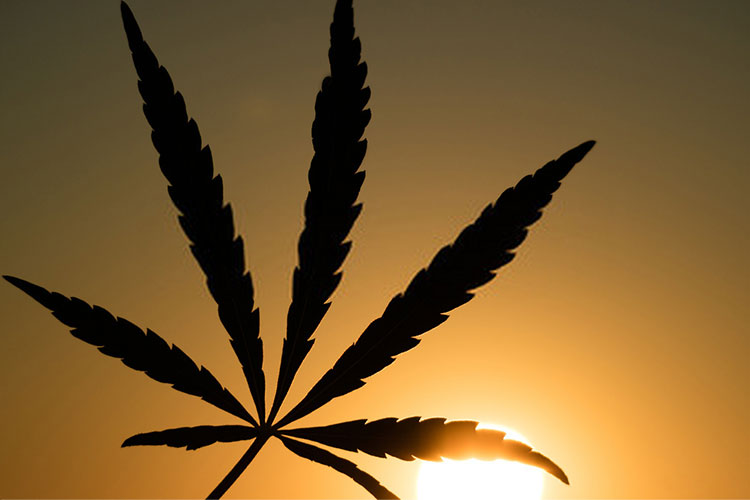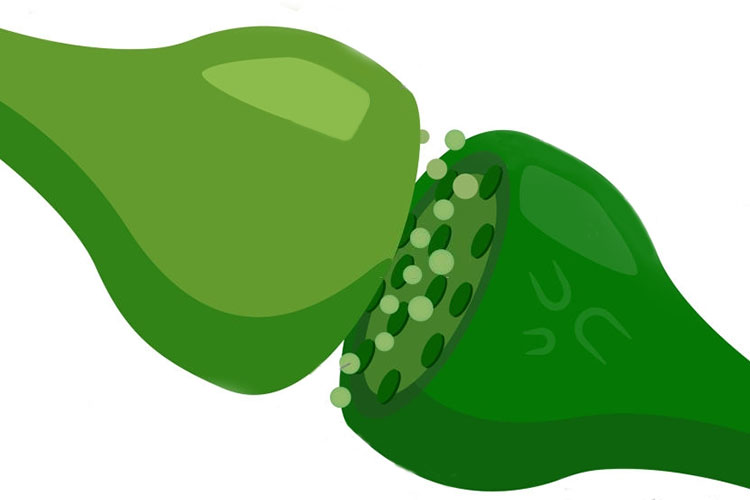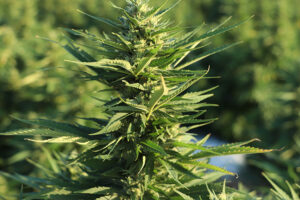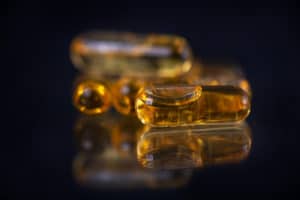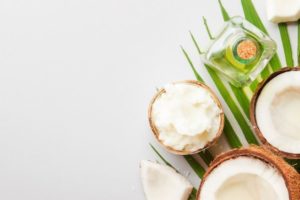Phytocannabinoids have a wide range of benefits, so it’s no surprise that people worldwide love phytocannabinoids and CBD products. But first, let’s start with the basics. What are phytocannabinoids, and how do they affect the human body?
This guide will help you to understand phytocannabinoids, how they work, and their benefits to the human body. Let’s explore.
What Are Phytocannabinoids?
Over the years, plants and animals have evolved to survive the ever-changing environment. Present-day cannabis plants, for example, have evolved to contain a unique group of plant-based molecules known as phytocannabinoids.
Phytocannabinoids are naturally occurring cannabinoids found in the cannabis plant. They are molecules that grow primarily within tiny glands on plants known as trichomes and help fight off potential predators from sucking nutrients and energy from the plant.
Cannabis or hemp plants developed phytocannabinoids to:
- Survive harsh weather conditions
- Thwart off fungus and bacteria
- Attract pollinators
- Maintain water storage
- Deter insects and bugs
As it turns out, phytocannabinoids have plenty of benefits for the human body.
Ongoing research suggests many health benefits of phytocannabinoids. When extracted from the plant, phytocannabinoids can interact with your endocannabinoid system, resulting in various therapeutic and psychotropic effects.
What Is the Endocannabinoid System?
The endocannabinoid system (ECS) is a communication network that works autonomously and spans the entire body, ensuring everything in your system remains in balance. The ECS relies on cannabinoid receptors on our cells to maintain balance. The two primary cannabinoid receptors are known as CB1 and CB2.
CB1 receptors are present in areas such as the brain, liver, fat cells, and muscles – areas that seem to support day-to-day activities. CB2 receptors are found in the bone marrow and around immune cells – areas that play a role in our health and longevity.
These receptors can detect a shift in balance. They are aware of allergens, viral attacks, and changes in body temperature. Any shift can cause several reactions. The brain interprets these messages and takes action to draw our attention to the situation. That’s why the body creates endocannabinoids – to restore order.
Phytocannabinoids Benefits
Overall, phytocannabinoids tend to have a positive impact on whole-body wellness. Some phytocannabinoids benefits include:
Phytocannabinoids Promote Calmness and Relaxation
A significant percentage of adults report that stress negatively impacts their mental and physical health – close to half of those adults report feelings of anxiety and nervousness. Because the ECS plays a fundamental role in the maintenance and regulation of all body systems, and phytocannabinoids support the ECS, it’s not surprising to learn that phytocannabinoids can help to calm anxiety and stress.
Phytocannabinoids Help Reduce Pain and Inflammation
Inflammation is part of everyday life. Research shows that consuming refined grains, desserts, and processed meats can all result in more inflammation. Even exercising may result in temporary pain and inflammation. Researchers found:
- Supplementing with phytocannabinoids significantly reduced the levels of resistin, a protein that promotes inflammation
- Phytocannabinoids may have an application for pain
- Cannabinoids successfully reduced inflammatory markers
Phytocannabinoids Support the Onset of Sleep
Supplementing with phytocannabinoids helps to support the onset of sleep, especially among those having difficulty sleeping. Phytocannabinoids promote quality, tranquil sleep.
Phytocannabinoids offer various other benefits for:
- Hypertension
- Schizophrenia
- Parkinson’s Disease
- Epilepsy
- Cigarette addiction
CBD vs. Other Phytocannabinoids
Cannabidiol (CBD) differs from other phytocannabinoids as it tends to counteract the adverse effects of other cannabinoids. Take the phytocannabinoid tetrahydrocannabinol (THC), one of the most abundant phytocannabinoids found in marijuana. THC produces mind-altering effects and is the psychoactive compound in marijuana that makes you high.
CBD, on the other hand, is non-psychoactive. It has ‘little binding’ affinity to either of our two cannabinoid receptors (CB1 and CB2). Alternatively, it stimulates them and has an impact on other ion channels and cannabinoid receptors.
The result is a relaxing effect on the receptor that translates to the ECS. CBD may help to balance out the psychoactive effects caused by THC. It can help you feel more balanced, relaxed, and other therapeutic effects without the intoxicating feelings. Because of this, CBD has become an extremely popular supplement.
Are Phytocannabinoids the Same as CBD?
CBD or Cannabidiol belongs to a family of phytocannabinoids. It’s the second more abundant phytocannabinoid in cannabis and has many potential therapeutic benefits. CBD can be sourced from both hemp plants and cannabis. Other plants that contain phytocannabinoids include basil and oregano. Besides CBD, the most well-known of the phytocannabinoids is THC or tetrahydrocannabinol.
What Is the Difference Between Phytocannabinoids And Endocannabinoids?
Phytocannabinoids can interact with our body’s natural system because their behaviors and makeups mimic endocannabinoids. The most significant difference between the two is that endocannabinoids are produced in mammals, while phytocannabinoids are found in plants.
The two compounds have varying molecular structures, but they both activate the body’s ECS by binding to cannabinoid receptors. Each phytocannabinoid reacts with our system in its own unique way. Even more interesting is that each interaction elicits a different response.
Mammals produce endocannabinoids naturally, and they’re critical to creating therapeutic body functions. When endocannabinoids bind with cannabinoid receptors, they trigger physiological processes such as pain-sensation and appetite, while altering brain reward systems, memory, and mood.
The brain produces endocannabinoids as messengers, playing a critical role in the larger ECS to create homeostasis or balance within the body. Endocannabinoids, therefore, act as checks and balances created on-demand to regulate body functions. They’re produced as a reaction to potential threats to the system. And unlike other molecules, the body doesn’t make a surplus of endocannabinoids and uses them when needed. Phytocannabinoids help when the body’s homeostasis is disrupted due to an imbalance. They can produce more medicinal effects, often making up for endocannabinoid deficiencies in the body when they trigger therapeutic responses.
Final Thoughts
As mentioned earlier, we already know that our bodies produce their own cannabinoids to regulate bodily functions and maintain homeostasis. So, you may be asking yourself, why do I need to take something that my body already creates on its own?
You can think of it as supplementing your system. Your body makes certain nutrients on its own, but those amounts can be impacted by internal and external factors from everyday life.
Taking hemp-sourced CBD as part of your daily routine can help provide an overall sense of enhanced wellbeing by supporting some of those imbalances. If you’re thinking about phytocannabinoids, CBD is a great option. CBD products are easy to use, have little to no side effects, and have proven to be effective in improving your overall health and wellbeing. Invest in your health and get started on the path to increasing your chances of living a healthier and longer life.
Before taking any supplements, it’s advisable to talk with your healthcare practitioner, who can offer professional advice based on your health and wellness goals.
FAQs About Phytocannabinoids Benefits
Question: What are phytocannabinoids for?
Answer: Phytocannabinoids are molecules found in the cannabis plant and few other species. They work to keep these plants healthy, and science has revealed their therapeutic potential in humans.
Question: Is CBD a Phytocannabinoid?
Answer: CBD is actually one of the dozens of phytocannabinoids that comprise hemp or cannabis plants.
Question: Can CBD improve brain function?
Answer: By reducing or removing the impact of inflammation, brain cell decline, and oxygen buildup, CBD can improve overall brain function.
Question: Where are Phytocannabinoids found?
Answer: Phytocannabinoids are cannabinoids that occur naturally in the cannabis or hemp plant and a few other plant species.
